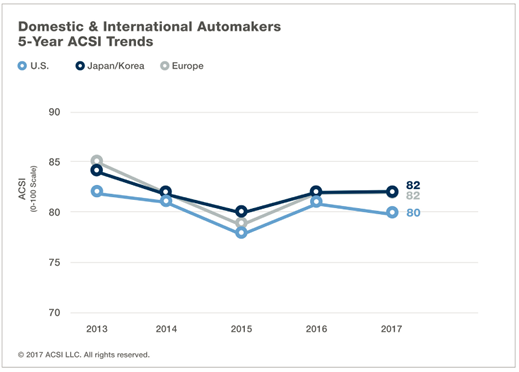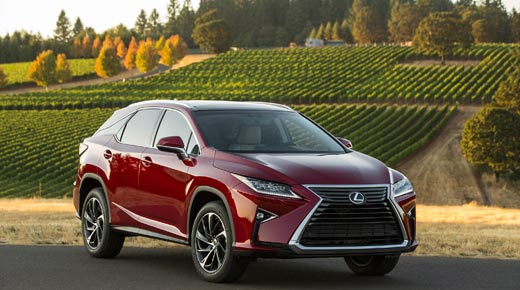Customer satisfaction with automobiles and light vehicles slips 1.2 percent to a score of 81 on the American Customer Satisfaction Index’s (ACSI) scale of 0 to 100. A year ago, the industry improved driver satisfaction, and sales were at record highs. This year, demand seems somewhat saturated, and total car sales are down 11.4 percent for the first half of 2017. So, too, is customer satisfaction for the industry, although individual nameplates post more gains than losses. Among the 25 automakers tracked by the ACSI, 12 improve from a year ago and only eight plates decline—four of which are domestic brands.
|
ADVERTISEMENT |
Foreign-made vehicles continue to have the highest driver satisfaction, and 77 percent of the above-average nameplates in the ACSI are imports. Many foreign-made cars are not part of the customer satisfaction downturn for the industry, and European automakers match Japanese and Korean manufacturers with an ACSI score of 82. The gap between international and domestic automakers widens as U.S. companies fall to 80.

…

Comments
Statistics
I guess I need to be the grinch and point out that statistics of this sort are somewhat suspect. Large numbers and small moves are the sort of thing that normally is addressed by a longer term rolling average to better damp the effects of transients.
One that comes to mind is the Takata airbag fiasco... 42 million (?) vehicles realled in the U.S. alone.
If I had been one of those affected, it would have definitely had a negative effect on my overall reaction to any question about my satisfaction. Seating comfort?... there's an airbag infront of me!
Interior styling? .... there's an airbag in front of me! And so it goes
Add new comment